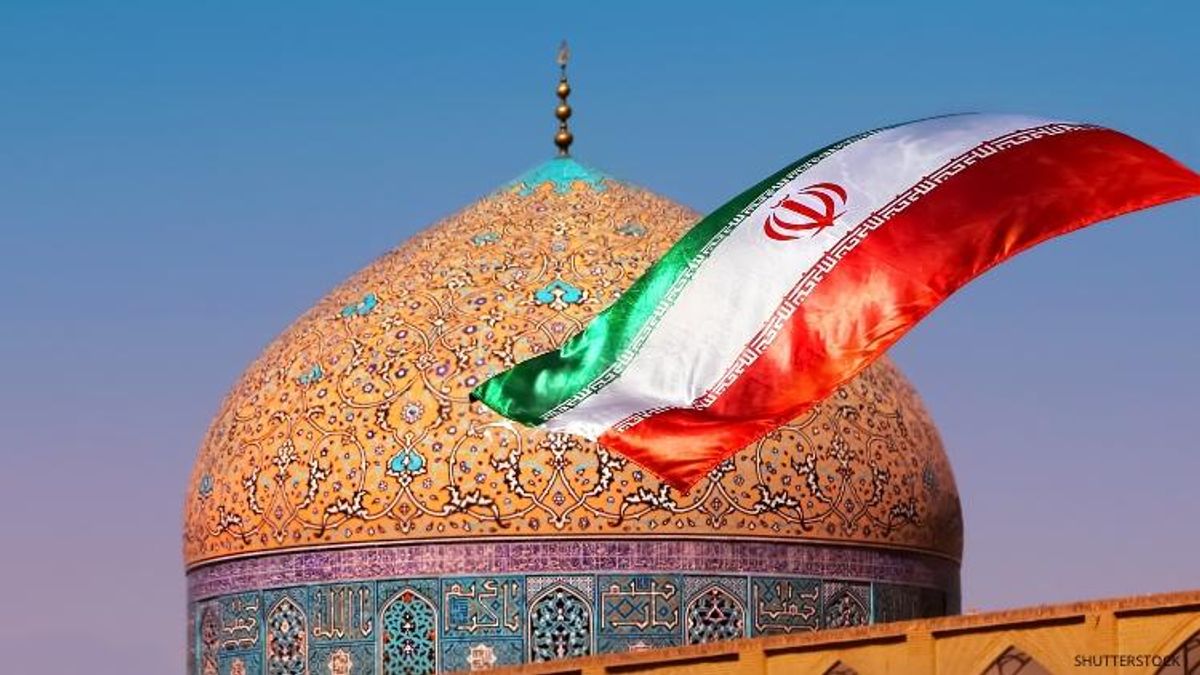News
Report: 62 Percent of LGBTQ+ Iranians Experience Violence From Family

A new report highlights real stories of queer Iranians fighting against their country's anti-LGBTQ+ laws.
September 24 2020 1:51 PM EST
May 31 2023 4:09 PM EST
By continuing to use our site, you agree to our Private Policy and Terms of Use.

A new report highlights real stories of queer Iranians fighting against their country's anti-LGBTQ+ laws.
A new survey is shedding light on the atrocities LGBTQ+ Iranians face on a daily basis.
The report, called "Hidden Wounds: A Research Report on Violence Against LGBTI in Iran," was published by the Iranian Lesbian and Transgender Network, 6Rang, took a more in-depth approach when asking LGBTQ+ people about what life is like in Iran, where homosexuality is illegal and can be punished by lashings and even death.
The 30-page report, unsurprisingly, found that violence against LGBTQ+ Iranians is widespread and commonplace with many incidents going unreported.
Researchers spoke to 230 self-identifying LGBTQ+ Iranians who responded to an extensive online survey over a three-month period. A majority of the participants (90 percent) currently live in the country. Nearly 30 percent of them were between 18 to 25 years old, while 15 percent were over 35 years old and 5 percent were under 18.
According to the report, 69 percent of all participants chose not to report assaults to authorities, citing that they "rarely" if "ever" have or will seek assistance from police.
The report points out that anti-LGBTQ+ violence is present in all areas of Iranian life -- including from family, sexual partners, friends and work colleagues, society overall, and political institutions.
In fact, 63 percent of participants reported having experienced violence by their family. Thirty-eight percent reported to have experienced violence from extended family members, while 20 percent have experienced violence from their partners, and 49 percent have experienced violence from friends or classmates.
Additionally, over half (52 percent) reported experiencing violence in public spaces, while nearly 30 percent reported being profiled by the police and getting arrested simply because of their sexual orientation or gender expression.
Twenty-eight percent reported physical and verbal violence while being detained by police, and 13 percent reported experiencing sexual violence.
"I was arrested in a car with my boyfriend when they [the police] arrested us at around 9:30 in the evening. They told us, 'What are two boys with such an age difference doing at this time of the night?' Then, they took us to the police station and called our parents. After that, I could not see my boyfriend," one anonymous man said in the report.
Another brave participant wrote, "My family gave me over to the police because I am intersex," while another shared, "I was arrested four times by the moral police because of being trans and because of my appearance. They also flogged me."
"I was arrested in the house that my partner and I had rented. It was a lot more like an attack than an arrest even though we had completely surrendered," one wrote.
Workplace discrimination is also a heavy burden faced by queer Iranians.
One participant wrote, "I was forced to resign after the theft and disclosure of my personal information about me and my partner. My employer also had to report us to law enforcement agencies, but due to mediation from some people around me they accepted not to do so."
Structural issues also exist within the educational system, as 107 of the 230 participants reported having experienced violence in their educational environments.
"At school I was sent to the principal's office multiple times and subsequently sent to receive counseling. I was also being threatened with expulsion because of my short hair and my style," one participant wrote.
"One of my teachers told me I had to have sex with him if I wanted to pass," another claimed.
"I was reprimanded because one of the girls [same sex as me] in school was romantically interested in me," one wrote. "Although I was not interested in her, I was temporarily suspended from school. I was told my short hairstyle was 'boyish' and it attracted girls."
The Iranian government's barbaric treatment toward LGBTQ+ people is no secret. According to a February report by the Sun, Iran has been forcing thousands of gay people to undergo gender reassignment surgeries against their will as a way to "cleanse" the country of homosexuality.
In January, the Jerusalem Post published a report about the execution of a 31-year-old Iranian man who was charged as a criminal for breaking the country's anti-gay laws. He was also accused of kidnapping, though the details of that charge are murky.
These acts have been blasted by leaders at the United Nations Human Rights Council, and it's often met with unapologetic replies.
The Post reports that in June 2019, a German journalist asked Mohammed Javad Zarif, Iran's Minister of Foreign Affairs, why LGBTQ+ people are being executed. Zarif justified the death penalty for homosexuality as "moral principles" held by society.
Though Zarif's comment was criticized by world leaders, Iran's U.N. ambassador, Esmaeil Baghaei Hamanehcontinued, defended Iran by claiming that activists are sensationalizing the comment and were attempting to "stigmatize the Iranian nation" and that it is not a reflection of "Iran's continuing progress in human rights performance."